That country, Japan, was caught virtually flat-footed. It was not that it had no advance warning - Japan's ambasssador
Oshima Hiroshi had caught notice of the plan earlier in the month and reported it to Tokyo on the 5th of June. But it had
received that warning too late still: for no more than two months earlier, it had concluded a neutrality pact with the
Soviets. 1
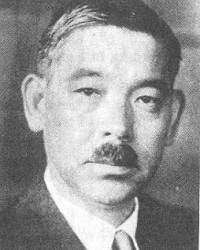 The man responsible for bringing about that pact was Japan's Foreign Minister, Matsuoka Yosuke. In personal talks with the
Soviets, Matsuoka had followed the example of Germany in befriending the Soviets (or so he thought). Obvious benefits would
result from this: improved relations with the Soviets would increase the chance of persuading Stalin to cease aiding China's
Nationalist regime, and allow some reorientation away from the Soviet threat, as well as sending a signal to the Americans
that Japan was not at all isolated. 2
The man responsible for bringing about that pact was Japan's Foreign Minister, Matsuoka Yosuke. In personal talks with the
Soviets, Matsuoka had followed the example of Germany in befriending the Soviets (or so he thought). Obvious benefits would
result from this: improved relations with the Soviets would increase the chance of persuading Stalin to cease aiding China's
Nationalist regime, and allow some reorientation away from the Soviet threat, as well as sending a signal to the Americans
that Japan was not at all isolated. 2
Now, on June 23rd, a shattered Matsuoka, who had ignored German hints at their upcoming offensive when he had visited Berlin in April, ruefully admitted to the Cabinet that he had misjudged. He went on to propose that Japan now join the Germans in their attack on the Soviets, a proposal so incredible when coming from the very architect of the neutrality pact that a cabinet member asked it to be repeated. 3 That same day, the Imperial Navy affirmed its wish to strike south and occupy Southern Indochina. 4
For a week thereafter, at two liaison conferences of the Army, Navy and Foreign Ministries, and the Prime Minister, the Japanese leadership debated the relative options. In the end, however, no decision was come to. An Imperial Conference on July 2nd was summoned to deal with the outstanding decisions. The result of the conference was a decision to leave the Soviets alone for the time being (presumably awaiting more favorable conditions), and concentrate on the South. The resolution called for the occupation of Southern Indochina, for the establishment of the "Greater East-Asia Co-Prosperity Sphere". Alas, it left open just about any route, by conditioning the future course of the Japanese expansion on the development of the situation. In recognition of that, it called for the secret mobilization of one million reservists and conscripts, for use either against the Soviets or in the southern expansion.5
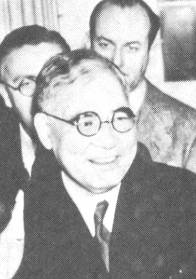 The next day, Ambassador Nomura Kichisaburo cabled from Washington: he warned that if the cabinet planned to use force
against the Southern Regions at this time, there would be little hope for restoring relations with America. Matsuoka could
not be bothered with such commentary. He ignored the warning.5A
The next day, Ambassador Nomura Kichisaburo cabled from Washington: he warned that if the cabinet planned to use force
against the Southern Regions at this time, there would be little hope for restoring relations with America. Matsuoka could
not be bothered with such commentary. He ignored the warning.5A
Soon after the Japanese had made their decision, and begun preparations, the Americans became aware of it. Informing their Washington embassy of the future prospects of the Japanese foreign policy, the Japanese unwittingly handed the U.S. administration an outline of what was to be expected in the future. Having broken Japan's top-level diplomatic "Purple" code in September 1940 (after previous successes in the 1920s), the Americans could read along most Japanese despatches. These, now, promised to require action in the future. 6
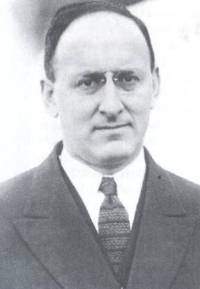 At the ensuing Cabinet meeting, a clash of opinion left much unresolved. Secretaries Morgenthau, Stimson, and Ickes 7 argued
for an oil embargo, quite along the British line of demands that called upon the United States to put up such an embargo.
State Secretary Hull, represented by his undersecretary Sumner Welles, argued against it (and had the support of his
department's, and the Navy's, analysts, who argued that an oil embargo virtually meant war). Roosevelt vacillated; he
postponed decision. 8
At the ensuing Cabinet meeting, a clash of opinion left much unresolved. Secretaries Morgenthau, Stimson, and Ickes 7 argued
for an oil embargo, quite along the British line of demands that called upon the United States to put up such an embargo.
State Secretary Hull, represented by his undersecretary Sumner Welles, argued against it (and had the support of his
department's, and the Navy's, analysts, who argued that an oil embargo virtually meant war). Roosevelt vacillated; he
postponed decision. 8
However, he did not intend to sit idly by while the Japanese continued to create their "new order" in South East Asia. On July 4th 9, he sent a message to Japan's Prime Minister Konoe Fumimaro, asking him whether rumors of the Japanese intention to attack the Soviet Union were true, and pointing to the dire consequences of further Japanese aggression. Konoe replied that he had no intention of attacking the Soviets, and professed Japan's desire for peaceful relations. Nevertheless, on July 10th, Acting Secretary of State Sumner Welles informed the British that the United States were willing to "immediately impose various embargoes" in case of any "overt step" by the Japanese in South East Asia. 10
While the Japanese conducted their secret talks with the French colonial leadership of Indo-China, Prime Minister Konoe Fumimaro also sought ways to come to terms with the Americans. On July 18th, he altered the setup of his cabinet by dismissing Foreign Minister Matsuoka, who ardently opposed Japanese-American talks, and brought in Admiral Toyoda Teijiro. 11 That same day, Roosevelt informed his cabinet that reliable source (the codebreakers) suggested the occupation of Indo-China to take place within the next three to four days. Queried as to the possible reactions the United States should consider, Roosevelt commented that they should do little; especially not embargo oil.12
On July 23rd, the Americans having learned of Japan's demands from France, Ambassador Nomura arrived at the State Department for talks with Acting Secretary of State Sumner Wells. Welles told Nomura that he could see little basis for further discussion now. Nomura asked tat he'd be given an off-the-record interview with Roosevelt.13
Three days later, July 24th, Roosevelt received a memorandum from Chief of Naval Operations, Admiral Harold Stark. In this memorandum, the Navy's position was clearly put as opposing an oil embargo for fear of the possible results of such action. 14
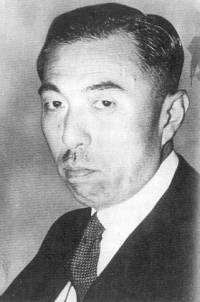 In the late afternoon, Nomura, Roosevelt, Stark, and Welles met at the White House. Roosevelt suggested to Nomura that an
agreement could be found on the basis of the neutralization of Indo-China, if no Japanese occupation took place. Roosevelt
spoke in plain terms to Nomura, whom he liked and respected: the United States, Roosevelt said, had abstained from imposing
an oil embargo in the past years because it didn't desire to give the Japanese a pre-text for the occupation of the oil-rich
Dutch East Indies. However, he could not face the American public saying he would continue oil deliveries to effectively
support Japanese aggression while his own people was using rationed gasoline. This Nomura submitted to his government later
that same day; noting that he sensed that economic embargoes were likely in the near future, lest the Japanese comply with
Roosevelt's suggestion. However, nothing came of this proposal. 15
In the late afternoon, Nomura, Roosevelt, Stark, and Welles met at the White House. Roosevelt suggested to Nomura that an
agreement could be found on the basis of the neutralization of Indo-China, if no Japanese occupation took place. Roosevelt
spoke in plain terms to Nomura, whom he liked and respected: the United States, Roosevelt said, had abstained from imposing
an oil embargo in the past years because it didn't desire to give the Japanese a pre-text for the occupation of the oil-rich
Dutch East Indies. However, he could not face the American public saying he would continue oil deliveries to effectively
support Japanese aggression while his own people was using rationed gasoline. This Nomura submitted to his government later
that same day; noting that he sensed that economic embargoes were likely in the near future, lest the Japanese comply with
Roosevelt's suggestion. However, nothing came of this proposal. 15
That very same day, Japanese and Vichy French authorities arrived at an understanding regarding the use of air facilities and harbors in Southern Indo-China, thanks in no small part to Japanese threats of violence. From July 24th on, Japanese forces would occupy the country.
On July 25th, faced with the fact that Japanese forces were progressing with their occupation of French Indo-China, Roosevelt gave in to the prodding of the Treasury and War Departments, froze Japanese assets in the United States, thereby bringing all Japanese transactions under the administration's control, forbade Japanese ships the passage through the Panama Canal, and on the request of the Chinese Nationalist government froze Chinese funds as well, to prevent the use of those Chinese funds now under Japanese control through conquest. The necessary Executive Orders were issued the next day. Britain followed the American example on July 26th, and the Dutch on July 28th. 16
On July 26th, too, Roosevelt federalized the Philippine armed forces, putting General Douglas MacArthur into charge of the newly established United States Army Forces Far East. 16A
Roosevelt hoped to bring the export of oil and other critical, but still un-embargoed materials under closer control and to be able to threaten a total cut-off of American oil and oil products. Therefore, on July 31st, he issued another directive permitting the release of funds sufficient to allow the Japanese to purchase oil up to prewar levels. At the same time, however, he embargoed high-grade aviation fuel. The bombing of the gunboat Tutuila the day before, and the narrow escape of her and the nearby American embassy at Chungking, did not exactly improve Japanese-American relations. Nomura, who had the unenviable task of meeting Roosevelt that same day, saw nothing but deep determination in the American faces. 17
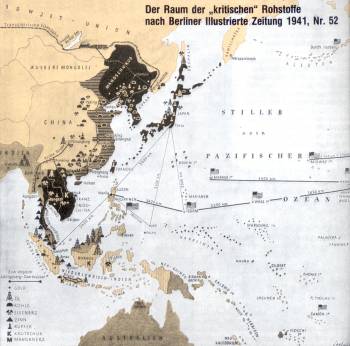 Now, the Japanese, who had been caught completely unprepared by the rapid escalation of economic pressure from the Western
powers, finally managed even so much as a semblance of a reply to Roosevelt's proposal of July 24th. On August 4th, Konoe
sought Emperor Hirohito's assent to a top-level meeting between him and Roosevelt. Hirohito assented. The next day,
Ambassador Nomura received Japan's reply to Roosevelt's proposal of July 24th, which was quickly realized to be unworkable.
Nomura gave it to Hull the next day, and was turned down. Japan's proposal of retention of her rights in Southern Indo-China
until the conclusion of the China War, of American aid in getting access to the Dutch oil, of American pressure on Chiang to
negotiate an acceptable peace, flew in the fact of the American proposal, and showed very little good will. Two days later,
Konoe, realizing that his new proposals were unsuitable, asked Nomura to deliver his request for a summit conference to
Roosevelt. Roosevelt being away at Placentia Bay for his ground-breaking meeting with Prime Minister Winston Churchill of
Great Britain, Nomura was unable to convey his message until the 17th of August. 18
Now, the Japanese, who had been caught completely unprepared by the rapid escalation of economic pressure from the Western
powers, finally managed even so much as a semblance of a reply to Roosevelt's proposal of July 24th. On August 4th, Konoe
sought Emperor Hirohito's assent to a top-level meeting between him and Roosevelt. Hirohito assented. The next day,
Ambassador Nomura received Japan's reply to Roosevelt's proposal of July 24th, which was quickly realized to be unworkable.
Nomura gave it to Hull the next day, and was turned down. Japan's proposal of retention of her rights in Southern Indo-China
until the conclusion of the China War, of American aid in getting access to the Dutch oil, of American pressure on Chiang to
negotiate an acceptable peace, flew in the fact of the American proposal, and showed very little good will. Two days later,
Konoe, realizing that his new proposals were unsuitable, asked Nomura to deliver his request for a summit conference to
Roosevelt. Roosevelt being away at Placentia Bay for his ground-breaking meeting with Prime Minister Winston Churchill of
Great Britain, Nomura was unable to convey his message until the 17th of August. 18
While these urgent Japanese moves were ongoing, trying to make sense of the unexpected development of their aggression south,
Roosevelt's scheme for leaving the actual extend of the American economic sanctions open, contingent on Japan's future moves,
was sabotaged. Roosevelt's official in charge of the Foreign Funds Control Comittee, Dean Acheson, an Assisstant Secretary
of State, had put his own interpretation on Roosevelt's order. Refusing to allow Japanese ships to buy fuel in American
ports, and employing his position to hinder Japanese attempts to free funds for oil purchases, he managed to impose a
virtual embargo on all sorts of oil, even crude, during August. Acheson found support in officials of the Treasury (whose
boss Morgenthau was ardently supporting a total embargo), and in the Office of Production Management. Neither Hull nor
Roosevelt realized this too soon, as the consequences were not readily apparent; and when both did at the end of August,
they decided not to revoke Acheson's decisions for fear of seeming week. 19

2. Opinion
Nothing ever came of the proposal for a summit meeting; and the de facto American oil embargo, unintended though it was,
drove Japan down the road to war as it chose to prefer to try the fortunes of war over any ever so slight retreat from
positions held on the Asian continent.
The American position had been aptly summed up in Roosevelt's comments to Nomura on July 24th: America could not sit idly
by while Japan used American oil to further its aggressive goals on the Asian continent. The Roosevelt administration
perceived the Japanese encroachment of Indo-China as a direct threat to the Philippines, explaining the call-up of the
Philippine National Army and the plan to reinforce the Philippines which was activated concurrently. It was also concious
that its previously pursued policy of relatively moderate opposition to the Japanese, mainly shown through loans of money
to China and in the scrap-iron embargo of the summer of 1940, had failed to hinder Japanese aggression. Since the Roosevelt
administration's fundamental opinion was that war was inevitable as long as further Japanese aggression was inevitable, it
was imperative that ways and means to found to curb Japanese aggression. However, by the summer of 1941, the moderate
policies adopted earlier crumbled under the onslaught of repeated Japanese assaults. Their usefulness was left in grave
doubt. If, however, they could not prevent further aggression, the conclusion was that they would ultimately lead to war,
and had to be replaced. The options which the administration still had were limited; and Roosevelt had stated quite clearly
that he could hardly explain why the United States were selling oil and other materials to a nation which was engaging in
aggressive war and conquest.
The reluctance with which Roosevelt treated the oil embargo spoke clearly of his conviction, supported by Hull and Stark,
that it would not lend itself to aiding to curb the Japanese aggression. The comparatively small economic pressure (still
powerful compared to the earlier sanctions) exerted by the decision for government control of Japanese money spending in
the U.S. would have allowed for an increase later on, if there was no sign of accomodation, or to relaxation, if the
Japanese accepted American proposals. The immediate purpose of the freezing of funds was to lend credence to the American
proposal of neutralizing Indo-China. However, the Japanese refusal to consider the proposal without changes that
effectively left nothing of the original idea also torpedoed the possibility of adjusting the severity of the sanctions to
the severity of Japan's offenses. That the execution of the funds-freeze was left in the hands of Treasury and State
officials that preferred a strict interpretation of the order over the intended aims did not help the Allies either; and
by September, the discovery of that critical development had been overtaken by events, as everyone concerned well knew.
Japan, whose military leadership, at all times predisposed to seek a solution in war, gained stronger control of all
affairs. By September, Prime Minister Konoe accepted a deadline for a successful solution of the problems on the round
table; his demission from the premiership in mid-October was the direct result of his failure to achieve such a solution.
His replacement, Army Minister General Tojo Hideki, persued negotiations only pro forma. But in fact, though Tojo's
government failed to offer reasonable ways out of the road to war, the Konoe administration had not done so either, in all
the sixteen months of its existence.
3. Notes
1 - Herbert P. Bix, Hirohito and the Making of Modern Japan, p. 394
2 - Walter LaFeber, The Clash, p. 195-96, Haruko & Theodore Cook, Japan at War, p. 90-95
3 - LaFeber, The Clash, p. 197
4 - Bix, Hirohito, p. 396
5 - Bix, Hirohito, p. 397-98
5A - Gordon Prange et al, At Dawn We Slept, p. 145-46
6 - Robert A. Divine, The Reluctant Belligerent, p.124
7 - Treasury, War, Interior
8 - Robert A. Divine, Reluctant Belligerent, p. 124, Dorothy Borg and Shumpei Okamoto, Editors, Pearl Harbor as History, p.100, p. 223
9 - Or July 6th, depending on the source.
10 - Divine, Reluctant Belligerent, p. 126, Alexander De Conde, A History of American Foreign Policy, p. 603
11 - Borg/Okamoto, Eds., Pearl Harbor as History, p. 76, Bix, Hirohito, p. 400, Basil Rauch, Roosevelt: From
Munich to Pearl Harbor, p. 389-390
12 - LaFeber, The Clash, p. 200
13 - Prange, At Dawn We Slept, p. 165-66, Divine, Reluctant Belligerent, p. 126
14 - Divine, Reluctant Belligerant, p. 126
15 - Prange, At Dawn We Slept, p. 166, Rauch, Roosevelt, p. 390-92, De Conde, Foreign Policy, p. 603
16 - LaFeber, The Clash, p. 200, De Conde, Foreign Policy, p. 603, Rauch, Roosevelt, p. 392-93, Divine,
Reluctant Belligerent, p. 126, Borg/Okamoto, Eds., Pearl Harbor as History, p. 49, p. 281
16A - Bix, Hirohito, p. 400
17 - Divine, Reluctant Belligerent, p. 127, Rauch, Roosevelt, p. 393, Prange, At Dawn We Slept, p. 168-69
18 - De Conde, Foreign Policy, p. 604, Rauch, Roosevelt, p. 396-97, Bix, Hirohito, p. 403-04
19 - Divine, Reluctant Belligerent, p. 127, LaFeber, The Clash, p. 200-01, Bix, Hirohito, P. 401